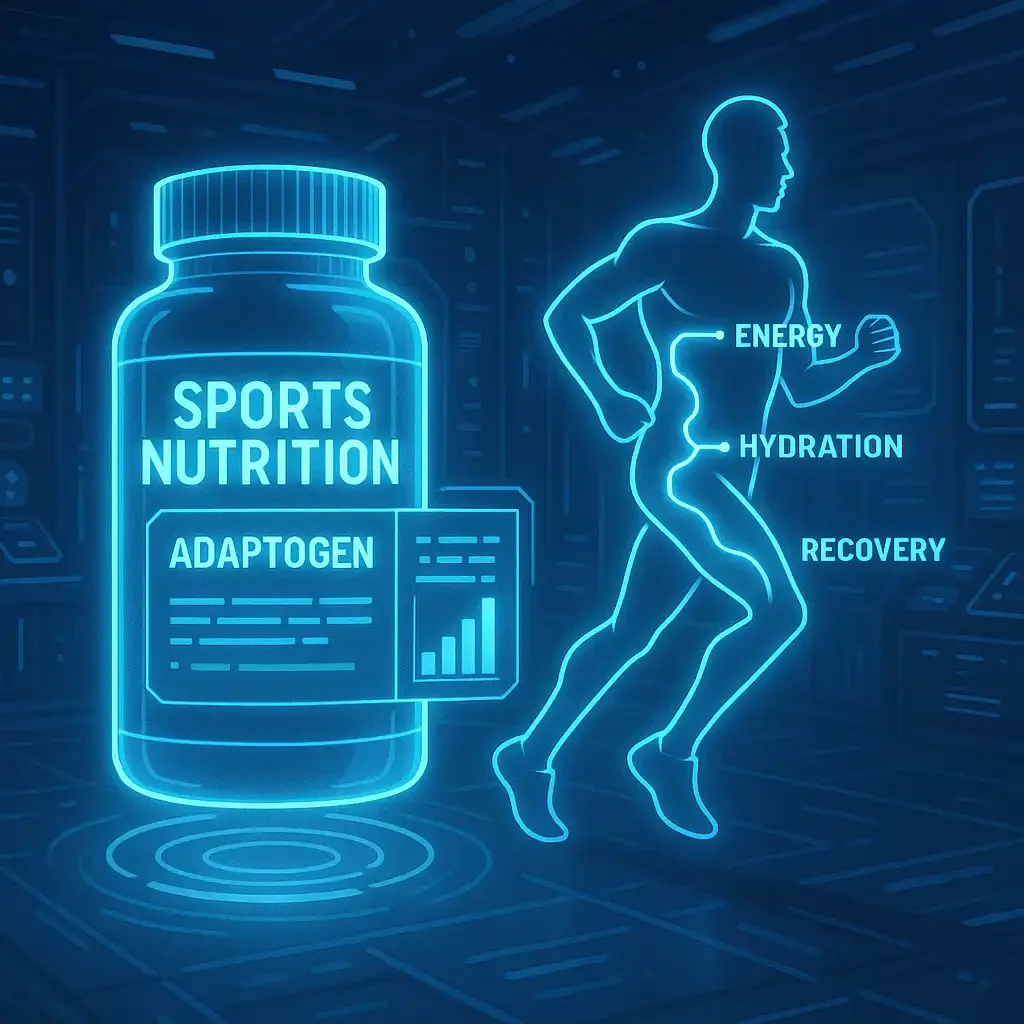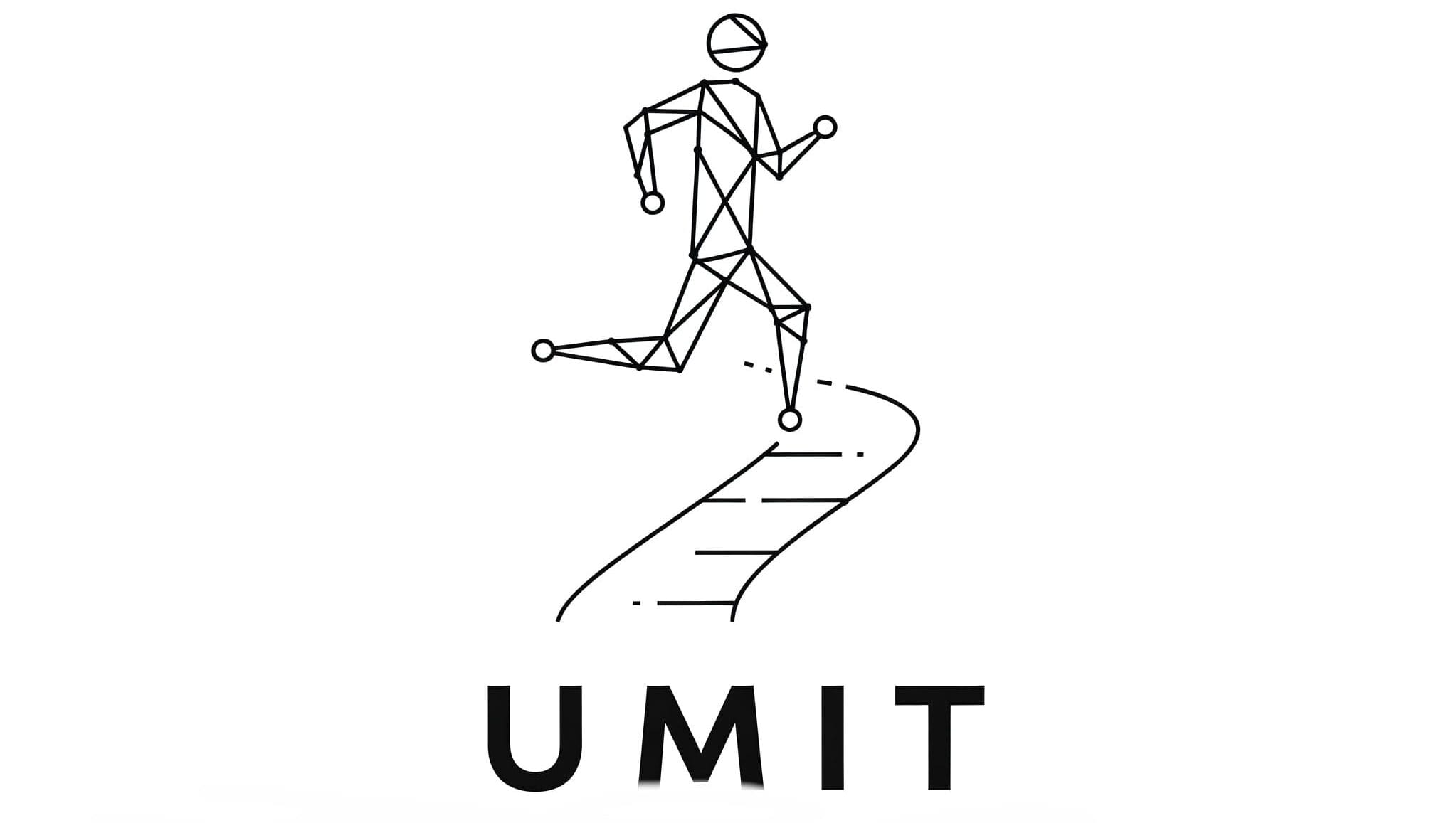Endurance athletes — from ultramarathoners to multi-day trail runners — push their bodies far beyond the limits of standard sports nutrition. In 2025, the focus has shifted from generic fueling strategies to ultra-specific nutrition plans built on science, sustainability, and real-world performance outcomes.
At the heart of these plans lies ultra nutrition: a specialized approach that combines smart macronutrient timing, strategic protein intake, and the targeted use of natural compounds known as adaptogens. The goal? To enhance stamina, reduce fatigue, and support long-term recovery — all while keeping the body resilient under extreme stress.
In this comprehensive guide, we’ll explore how adaptogen supplements like ashwagandha, rhodiola, and cordyceps are helping runners go longer, recover faster, and train harder. We’ll also break down the high-protein strategies that endurance athletes are using to stay strong across long mileage weeks — along with sample meals, recommended brands, and emerging trends.
If you’re training for a 50K, 100-miler, or a multi-day stage race, this article will help you fuel smarter — and finish stronger.
🧠 What Is Ultra Nutrition?
Ultra nutrition refers to the advanced dietary strategies tailored for athletes who participate in extreme endurance events — such as ultramarathons, multi-day trail races, and ultra-distance cycling. These activities often push the human body to its physiological limits, requiring not just more calories, but smarter, more efficient fueling systems.
Unlike traditional sports nutrition, ultra nutrition focuses on three interlocking pillars:
- Energy Balance: Ultra athletes can burn up to 8,000–10,000 kcal/day in competition. Maintaining a positive or neutral energy balance is critical to avoid muscle breakdown, fatigue, or even long-term hormonal dysfunction.
- Hydration & Electrolytes: Fluid losses may exceed 2 liters per hour in hot, high-intensity conditions. This increases the risk of hypohydration and exercise-associated hyponatremia (EAH) if not managed with precision.
- Recovery & Adaptation: Muscle damage, inflammation, and immune suppression are common after long races. Strategic use of protein, anti-inflammatory nutrients, and adaptogens can accelerate repair and promote adaptation to high training loads.
This is where functional ingredients like adaptogens and high-quality protein come into play — not just as performance enhancers, but as recovery accelerators and stress modulators. Ultra nutrition isn’t just about more fuel; it’s about smarter, sustainable fueling built for long-term success.
🌿 Evidence-Based Adaptogens for Endurance Athletes
Adaptogens are natural compounds — often derived from roots, mushrooms, or berries — that help the body adapt to physical and mental stress. For ultra-endurance athletes, adaptogens offer a unique advantage: they may reduce fatigue, regulate cortisol, and support recovery under chronic training stress.
Below are three of the most studied adaptogens for runners and endurance athletes, including their key benefits, typical dosages, potential side effects, and supporting studies:
| Adaptogen | Key Benefits | Dosage | Side Effects | Studies |
|---|---|---|---|---|
| Ashwagandha | Improves VO₂ max, reduces fatigue, supports muscle strength | 300–600 mg/day | Rhinitis, appetite loss, mild constipation | Shenoy et al. (cyclist study) |
| Rhodiola Rosea | Reduces muscle damage, lowers perceived exertion | 200–600 mg/day | Dizziness, dry mouth, excessive saliva | Parisi et al. (performance study) |
| Cordyceps | Enhances aerobic capacity, lowers heart rate at moderate intensity | 1–3 g/day | Nausea, dry mouth, GI discomfort | Savioli et al. (marathon research) |
Note: While promising, most studies are small and often exclude female athletes. Always consult a sports nutritionist or physician before using adaptogens, especially during long-term training blocks.
🥩 High-Protein Needs for Endurance Athletes
Protein isn’t just for bodybuilders. For endurance athletes, it plays a critical role in muscle repair, immune function, and long-term adaptation to training stress. Ultrarunners, in particular, experience frequent muscle breakdown due to high mileage, long races, and minimal recovery windows.
🔬 How Much Protein Do You Need?
Scientific research supports the following daily intake guidelines for endurance athletes:
- 1.2–2.0 grams per kilogram of body weight per day
This range accounts for training intensity, energy availability, and dietary habits. Athletes undergoing calorie restriction or high-volume training may benefit from intakes closer to 2.0 g/kg. - Post-Workout Recovery:
Consuming 0.25–0.3 g/kg of high-quality protein within 30–120 minutes after training is optimal for stimulating muscle protein synthesis and supporting recovery. - Even Distribution Matters:
Studies show that spreading protein intake evenly across meals (e.g., 20–30g per meal, 3–5 times daily) leads to better muscle maintenance and performance than front- or back-loading it.
🥦 Protein Sources for Endurance Athletes
- Animal-Based:
Chicken, turkey, eggs, Greek yogurt, cottage cheese, fish, and whey isolate are complete proteins and absorbed efficiently. - Plant-Based:
Lentils, chickpeas, black beans, quinoa, tofu, tempeh, and plant-based protein powders (like pea, soy, rice blends). Plant-based athletes should aim to combine proteins to ensure a full amino acid profile. - Special Consideration:
Nighttime protein, such as casein, may support overnight recovery by delivering a slow and steady amino acid release during sleep.
📈 Key Studies
- The International Society of Sports Nutrition (ISSN) recommends 1.4–2.0 g/kg for active individuals, especially during intense or prolonged exercise periods.
- A 2020 study using indicator amino acid oxidation found endurance athletes may need up to 1.8 g/kg/day to prevent muscle loss during heavy training blocks.

🏆 Top Supplement Brands for Endurance Athletes (2025 Edition)
Not all supplements are created equal — especially when it comes to the unique demands of ultra-endurance sports. The following brands are among the most trusted by elite and amateur runners alike, based on 2025 product reviews, athlete feedback, and sports nutrition awards.
🔹 1. Science in Sport (SiS)
Flagship product: Beta Fuel Gels
- Offers a 40g carb blend with an optimized 1:0.8 maltodextrin-to-fructose ratio.
- Designed to provide sustained energy during ultra races.
- Widely used by elite marathoners and cyclists.
Why athletes love it: Easy on the stomach, great for long runs.
🔹 2. Maurten
Flagship product: GEL 100 and GEL CAF100
- Uses hydrogel technology to deliver 25g of carbs per gel — plus a version with 100mg of caffeine.
- Scientifically formulated to minimize GI distress during hard efforts.
Why athletes love it: Clean ingredients, elite performance, used in major races.
🔹 3. Tailwind Nutrition
Flagship product: Endurance Fuel Mix
- Combines 50g of carbohydrates with electrolytes in one drink mix.
- Popular for ultramarathons thanks to its all-in-one fueling and hydration approach.
Why athletes love it: No gut bombs, light flavor, customizable concentration.
🔹 4. Veloforte
Flagship product: Recovery Shakes & Energy Bars
- Real-food based ingredients with a 3:1 carbs-to-protein ratio in recovery products.
- Bars use nuts, fruits, and natural sugars for a wholesome energy boost.
Why athletes love it: Tastes like actual food, not artificial sports fuel.
🔹 5. Precision Fuel & Hydration
Flagship product: Personalized Electrolyte Tabs + Gels
- Offers sweat testing kits and a hydration planner for tailored fueling.
- Gels and chews designed to match your sodium loss and sweat rate.
Why athletes love it: Hyper-personalized hydration system.
These brands have earned their place in ultra-endurance nutrition by consistently delivering performance, palatability, and reliability — all while staying current with the latest scientific developments.
🍽️ Sample High-Protein Recipes for Ultra Runners
Fueling for endurance isn’t just about energy gels and recovery shakes — real food matters. These high-protein meals are designed for recovery, muscle repair, and sustained energy, while being easy to prepare and delicious to eat. They also include a good balance of healthy fats and complex carbohydrates for well-rounded nourishment.
🥣 1. Turmeric Smoked Salmon Bowl
Ingredients:
- Cooked quinoa
- Smoked salmon
- Boiled egg
- Sliced avocado
- Hemp seeds
- Baby spinach
- Olive oil + lemon dressing
- Pinch of turmeric
Why it works:
Rich in omega-3s, protein, and anti-inflammatory compounds. Ideal for post-run recovery with balanced macros.
🥞 2. Protein Banana Pancakes
Ingredients:
- 1 ripe banana
- 2 eggs
- 1 scoop vanilla or plain protein powder
- Dash of cinnamon
- Coconut oil for cooking
Why it works:
Quick to make, portable, and packs 20+ grams of protein per serving. Perfect after a morning long run.
🥚 3. Egg & Crab Muffins (Portable Recovery Bites)
Ingredients:
- 6 eggs
- 1/2 cup cottage cheese
- 1/2 cup cooked crab meat (or canned)
- Diced red pepper
- Salt, pepper, herbs
Why it works:
These savory protein muffins can be prepped ahead and eaten on the go. High in protein, low in sugar.
🍏 4. Apple Pie Overnight Oats (Plant-Based)
Ingredients:
- Rolled oats
- Plant-based milk (almond, soy, oat)
- Scoop of vegan protein powder
- Diced apples
- Walnuts or pecans
- Cinnamon and chia seeds
Why it works:
A slow-digesting, protein-rich breakfast that supports muscle recovery and keeps blood sugar stable.
Each of these meals delivers 20–30g of protein and includes anti-inflammatory and endurance-supportive ingredients — ideal for ultra athletes balancing performance with real-world nutrition.

🌱 2025 Nutrition Trends for Endurance Athletes
The world of sports nutrition is evolving fast — and endurance athletes are leading the charge. In 2025, a few standout trends are reshaping how runners fuel, recover, and optimize performance, with an emphasis on sustainability, personalization, and science-backed innovation.
🌿 1. Plant-Based Performance Fueling
Plant-based proteins like pea, hemp, pumpkin seed, and algae are taking over the endurance world. Athletes are opting for vegan-friendly, eco-conscious options that still deliver complete amino acid profiles.
- Combining multiple plant proteins ensures a full EAA spectrum.
- Many new blends include added BCAAs or leucine for recovery support.
- Digestibility and flavor have improved dramatically compared to previous years.
🔍 Trending brands: Vega, Nuzest, Form Nutrition
🧠 2. Adaptogen Blends for Stress & Recovery
Single adaptogens are out — synergistic blends are in. Runners are now using formulas that combine:
- Ashwagandha + Rhodiola (for mental focus & fatigue)
- Cordyceps + Reishi (for oxygen use & immune support)
- Schisandra + Maca (for hormone balance & resilience)
These blends are often delivered via powders, capsules, or recovery drinks — optimized for absorption and timing.
✨ Bonus: Many blends now include magnesium, zinc, or nootropics to support nervous system balance post-run.
🌍 3. Sustainable Protein Sources
In line with eco-conscious living, endurance athletes are exploring novel protein sources:
- Insect protein: Extremely sustainable, high bioavailability (but still faces cultural resistance).
- Mycoprotein (Quorn): A fungus-derived source with a meat-like texture and full amino acid profile.
- Microalgae (Spirulina, Chlorella): Rich in iron, B12, and complete protein — plus antioxidant benefits.
These alternatives are especially popular among runners seeking ethical options without compromising performance.
⚙️ 4. Personalized Fueling & AI-Guided Supplementation
Gone are the days of one-size-fits-all. In 2025, runners are embracing:
- Sweat testing kits to calculate sodium loss rates.
- Wearable-connected apps that analyze recovery, HRV, and diet to adjust supplement timing.
- AI-powered meal planners based on macronutrient targets, stress levels, and race schedule.
The future is personal — and it’s designed to maximize both health and performance over the long haul.
✅ Final Thoughts
Ultra nutrition is no longer just about eating more — it’s about fueling smarter. With the right combination of adaptogens, high-quality protein, and evidence-based strategies, endurance athletes can recover faster, run longer, and sustain peak performance through heavy training blocks and brutal races.
Whether you’re racing a 100-miler or training for your first ultra, incorporating these tools — from proven supplements to practical meals — could be the game-changer you’ve been missing.
🏁 Train hard. Recover harder. Fuel like an ultra.

🎥 Recommended Videos
| Video | Description | Link |
|---|---|---|
| Dr. Andy Galpin: Optimal Supplementation for Fitness | Deep dive into sports supplementation, including protein, creatine, and timing. | Watch on YouTube |
| Protein Needs in Endurance Athletes – Luc van Loon | World-renowned expert explains protein timing and endurance recovery. | Watch on YouTube |
| How Do Adaptogens Work for Athletes? – Dr. Barker | Quick explainer on Rhodiola, Ashwagandha, and how they affect the athlete’s body. | Watch on YouTube |
📚 Recommended Books
| Book | Description |
|---|---|
| The Protein Book – Lyle McDonald | Gold-standard reference for athletes, coaches, and serious lifters on all things protein. |
| The Endurance Diet – Matt Fitzgerald | A practical guide to high-performance eating for long-distance athletes. |
| Sports Nutrition for Endurance Athletes – Monique Ryan | Covers fueling strategies, supplements, and periodized nutrition. |
| The Plant-Based Athlete – Robert Cheeke & Matt Frazier | Great resource for runners using plant-based strategies to fuel performance. |
❓ Frequently Asked Questions
🌿 What is ultra nutrition in endurance sports?
🥩 How much protein do endurance athletes really need?
💊 What are adaptogens and how do they help runners?
⏰ When is the best time to take protein after a run?
🧪 Are adaptogens scientifically proven to work?
🍽️ Can I get enough protein from a plant-based diet?
⚠️ Are there any risks or side effects of adaptogens?
🧠 Do adaptogens help with mental focus too?
🧃 What’s the difference between whey and plant protein?
🕒 Should I take protein before bed?
💥 Can adaptogens improve race-day performance?
🥤 Is it better to drink or eat protein after a long run?
🧯 Which adaptogen is best for inflammation?
👟 Are these supplements allowed in races?
🧊 Can I freeze high-protein meals for later use?
📈 What’s the benefit of combining protein and carbs?
🚫 Can I take too much protein?
🧭 How do I choose a quality supplement brand?
🔄 Should I cycle adaptogens?
🎯 Can I use adaptogens and protein together?
🔗 Further Reading
🧠 Ultra Nutrition Quiz
Test your knowledge on adaptogens, protein, and fueling strategies for endurance athletes.
- What is the recommended daily protein intake for endurance athletes?
- Which adaptogen is best known for improving VO₂ max?
- When should you ideally consume protein after a long run?
- True or False: Cordyceps is a plant-based protein source.
- Which brand uses hydrogel technology for smoother digestion?
- Why is it helpful to combine protein and carbohydrates post-run?
- Name two examples of high-protein recovery meals.
- What potential side effect is associated with Rhodiola Rosea?
- True or False: Plant-based athletes need to combine protein sources for a complete amino acid profile.
- Which trend in 2025 focuses on personalization and AI support?
✅ Quiz Answers
- 1.2–2.0 g/kg/day
- Ashwagandha
- Within 30–120 minutes
- False
- Maurten
- Faster glycogen replenishment + muscle repair
- Protein pancakes, smoked salmon bowl
- Dizziness or dry mouth
- True
- Personalized fueling & wearable-guided supplementation
📢 Share Your Score!
Nailed the quiz? Let your friends know how much you know about ultra nutrition!

About the Author
Lost Pace is an ultramarathon runner, shoe-tester and the founder of umit.net. Based year-round in Türkiye’s rugged Kaçkar Mountains, he has logged 10,000 + km of technical trail running and completed multiple 50 K–100 K ultras.
Blending mountain grit with data, Lost analyses power (CP 300 W), HRV and nutrition to craft evidence-backed training plans. He has co-written 260 + long-form guides on footwear science, recovery and endurance nutrition, and is a regular beta-tester of AI-driven coaching tools.
When he isn’t chasing PRs or testing midsoles, you’ll find him sharing peer-reviewed research in plain English to help runners train smarter, stay healthier and finish stronger.
Ultrarunner · Data geek · Vegan athlete

